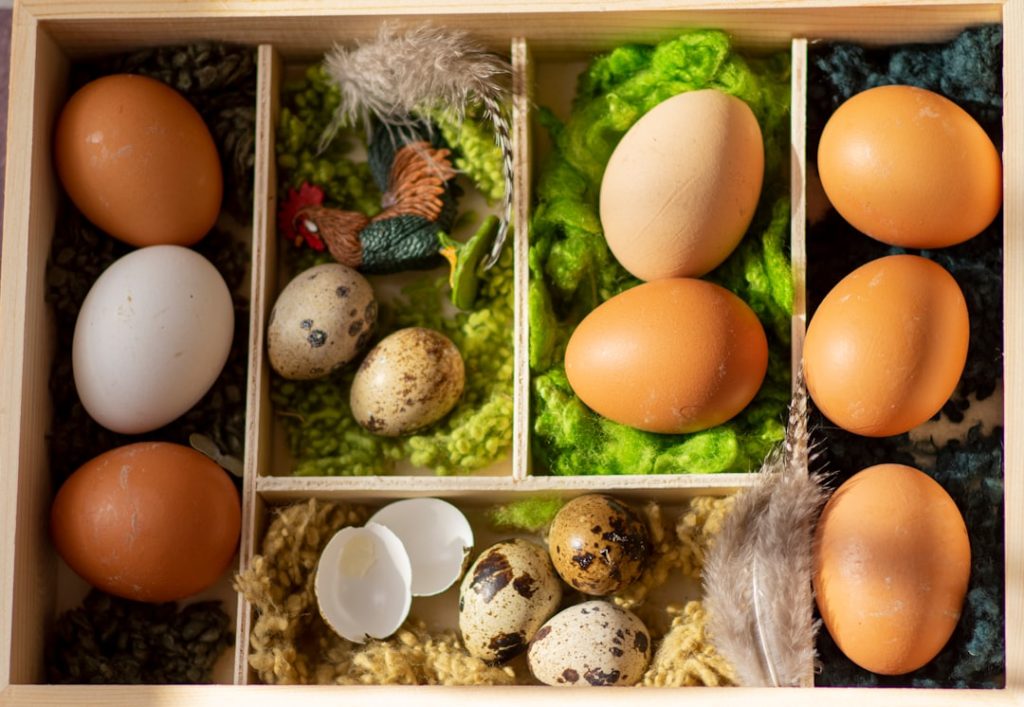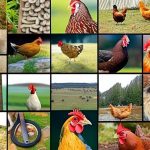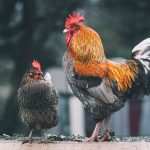Keeping chickens in the Amazon region can be a rewarding endeavor due to the warm climate, which is favorable for poultry rearing. However, it is crucial to understand the fundamental requirements before beginning. Essential considerations include adequate space, proper housing, and necessary resources.
A suitable coop and run are vital components for chicken keeping. The coop should provide protection from predators and weather conditions, while the run should offer sufficient space for the chickens to move freely and engage in natural behaviors. Access to clean, fresh water and a balanced diet are also critical for maintaining chicken health.
Proper nutrition for chickens consists of a mixture of grains, seeds, and greens. Occasional treats such as mealworms or kitchen scraps can be offered as supplements. It is important to note that daily care is required, including coop cleaning, egg collection, and health monitoring of the flock.
Before starting a chicken-keeping project in the Amazon, it is essential to research and comply with local regulations and ordinances regarding poultry ownership. Understanding these legal requirements will help ensure a smooth and lawful chicken-keeping experience. By thoroughly preparing and educating oneself on chicken care basics, individuals can create an environment where their flock can thrive in the Amazon’s unique climate and ecosystem.
Table of Contents
- 1 Choosing the Right Chicken Breed for Your Amazon Environment
- 2 Building a Coop and Run for Your Chickens
- 3 Feeding and Caring for Your Chickens in the Amazon
- 4 Health and Disease Prevention for Chickens in the Amazon
- 5 Egg Production and Harvesting
- 6 Tips for Integrating Chickens into Your Amazon Lifestyle
- 7 FAQs
Key Takeaways
- Keeping chickens requires basic knowledge of their needs for shelter, food, and care.
- Choose chicken breeds that are well-suited for the hot and humid climate of the Amazon.
- Building a coop and run for chickens in the Amazon should prioritize ventilation and protection from predators.
- Feeding and caring for chickens in the Amazon involves providing a balanced diet and monitoring for signs of heat stress.
- Preventing diseases in chickens in the Amazon involves maintaining a clean environment and regular health checks.
Choosing the Right Chicken Breed for Your Amazon Environment
Heat-Tolerant and Disease-Resistant Breeds
Some breeds are better suited to the Amazon’s climate than others. Look for breeds that are heat-tolerant and disease-resistant, such as the Australorp, Rhode Island Red, and Orpington. These breeds are known for their ability to thrive in warm climates and are also excellent egg producers, making them a great choice for backyard flocks in the Amazon.
Size and Temperament Considerations
In addition to climate and purpose, it’s essential to consider the size and temperament of the breed, especially if you have limited space or young children. Bantam breeds, such as the Silkie or Pekin, are smaller in size and known for their friendly disposition, making them an excellent choice for families with small children.
Ultimate Considerations
Ultimately, the right chicken breed for your Amazon environment will depend on your specific needs and preferences. By considering factors such as climate, purpose, and temperament, you can select breeds that are well-suited to thrive in the warm and humid conditions of the Amazon.
Building a Coop and Run for Your Chickens
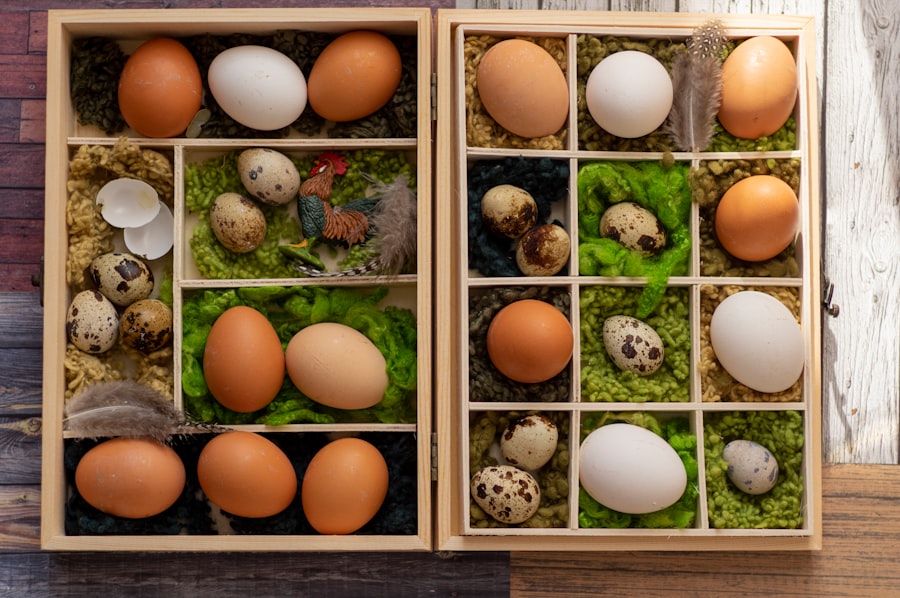
Building a coop and run for your chickens is an essential step in creating a safe and comfortable environment for your flock. In the Amazon, where the climate is warm and humid, it’s important to design a coop that provides adequate ventilation and protection from the elements. Additionally, the run should offer ample space for the chickens to roam and forage, while also providing protection from predators.
When building a coop in the Amazon, it’s important to prioritize ventilation and airflow. This can be achieved through the use of windows, vents, and elevated roosts to allow hot air to escape and cool air to circulate. Additionally, it’s important to provide adequate shade and protection from heavy rain, which can be achieved through the use of overhangs or a covered run.
The coop should also be secure from predators such as snakes, rats, and birds of prey, so be sure to use sturdy materials and secure latches. In addition to the coop, it’s important to provide a spacious run for your chickens to exercise and forage. The run should be enclosed with wire mesh to prevent predators from gaining access, and should also include areas of shade and protection from the elements.
Providing ample space for your chickens to roam will not only keep them healthy and happy but will also reduce stress and aggression within the flock. By building a well-designed coop and run for your chickens in the Amazon, you can create a safe and comfortable environment for your flock to thrive.
Feeding and Caring for Your Chickens in the Amazon
Feeding and caring for your chickens in the Amazon requires careful attention to their nutritional needs and overall well-being. In the warm and humid climate of the Amazon, it’s important to provide access to fresh water at all times, as well as a balanced diet that meets their nutritional requirements. Additionally, regular care and maintenance are essential for keeping your flock healthy and happy.
Chickens require a balanced diet that includes a mix of grains, seeds, greens, and protein. In the Amazon, where fresh vegetation is abundant, you can supplement their diet with foraged greens such as grasses, weeds, and leafy vegetables. Additionally, providing access to insects or mealworms can help supplement their protein intake.
It’s important to avoid feeding your chickens foods that are toxic or harmful to their health, such as avocado pits or chocolate. In addition to their diet, regular care and maintenance are essential for keeping your chickens healthy in the Amazon. This includes cleaning the coop on a regular basis to prevent the buildup of waste and bacteria.
It’s also important to monitor their health and behavior on a daily basis, as early detection of illness or injury can help prevent more serious problems down the line. By providing a balanced diet and regular care for your chickens in the Amazon, you can ensure that they stay healthy and happy in their warm and humid environment.
Health and Disease Prevention for Chickens in the Amazon
Maintaining the health of your chickens in the Amazon requires proactive measures to prevent disease and illness. The warm and humid climate of the Amazon can create an ideal environment for parasites and pathogens that can impact the health of your flock. To prevent disease and maintain optimal health for your chickens, it’s important to implement a comprehensive health management plan that includes regular monitoring, vaccination, parasite control, and biosecurity measures.
Regular monitoring of your flock is essential for early detection of any signs of illness or disease. This includes observing their behavior, appetite, droppings, and overall appearance on a daily basis. Any changes in behavior or appearance should be investigated promptly to prevent further spread of disease within the flock.
Vaccination is an important aspect of disease prevention for chickens in the Amazon. Vaccines can help protect against common diseases such as Newcastle disease or infectious bronchitis. Consult with a veterinarian or poultry health expert to determine which vaccines are necessary for your specific region and flock.
Parasite control is another critical aspect of maintaining chicken health in the Amazon. Warm and humid conditions can create an ideal environment for parasites such as mites, lice, or worms. Implementing a regular parasite control program can help prevent infestations that can impact the health of your flock.
Biosecurity measures are also important for preventing disease transmission within your flock. This includes limiting exposure to wild birds or other poultry flocks, as well as implementing strict hygiene practices when handling or caring for your chickens. By implementing a comprehensive health management plan that includes regular monitoring, vaccination, parasite control, and biosecurity measures, you can help prevent disease and maintain optimal health for your chickens in the Amazon.
Egg Production and Harvesting
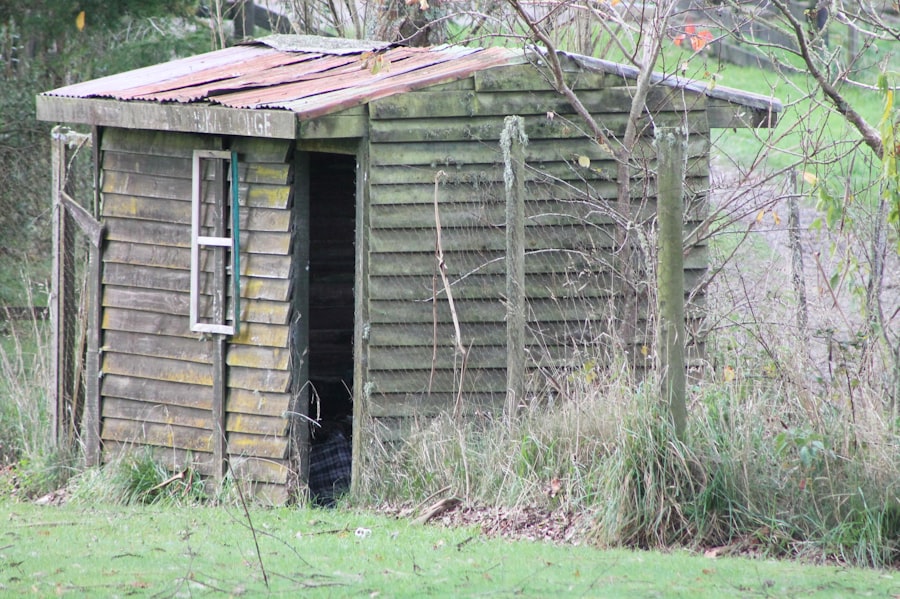
Nutrition for Optimal Egg Production
Chickens require a balanced diet that meets their nutritional needs to produce high-quality eggs. This includes a mix of grains, seeds, greens, and protein sources such as insects or mealworms. Additionally, providing access to calcium sources like oyster shells can help support strong eggshell formation.
Living Conditions for Happy Hens
Suitable living conditions are essential for maximizing egg production from your flock. This includes providing a well-designed coop with adequate ventilation and nesting boxes that offer privacy and security for laying hens. It’s crucial to keep nesting boxes clean and free from debris to encourage hens to lay eggs in a suitable location.
Regular Care for Maximum Egg Production
Regular care is vital for maintaining optimal egg production from your flock. This includes monitoring their health and behavior daily, as well as collecting eggs on a regular schedule to prevent them from becoming dirty or damaged. By providing a balanced diet, suitable living conditions, and regular care for your flock, you can maximize egg production from your chickens in the Amazon.
Tips for Integrating Chickens into Your Amazon Lifestyle
Integrating chickens into your Amazon lifestyle can be a rewarding experience that provides fresh eggs, natural pest control, and entertainment for your household. To successfully integrate chickens into your lifestyle in the Amazon, it’s important to consider factors such as space limitations, local regulations or ordinances regarding chicken keeping, as well as potential challenges related to predators or climate. Before bringing chickens into your household in the Amazon, it’s important to consider any space limitations or restrictions that may impact their living conditions.
Ensure that you have adequate space for a coop and run that meets their needs while also complying with local regulations or ordinances regarding chicken keeping. Additionally, it’s important to consider potential challenges related to predators or climate that may impact their safety or well-being. Implementing measures such as secure fencing or predator-proofing your coop can help protect your flock from potential threats.
Integrating chickens into your lifestyle in the Amazon also requires commitment to their care and maintenance on a daily basis. This includes providing access to fresh water at all times, feeding them a balanced diet that meets their nutritional needs, monitoring their health on a regular basis, as well as collecting eggs on a regular schedule. By considering factors such as space limitations, local regulations or ordinances regarding chicken keeping, potential challenges related to predators or climate, as well as committing to their care on a daily basis, you can successfully integrate chickens into your lifestyle in the Amazon.
If you’re interested in learning more about keeping chickens, you might want to check out this article on 10 Tips for Building the Perfect Chicken Coop. It offers valuable insights into creating a safe and comfortable environment for your feathered friends.
FAQs
What are the benefits of keeping chickens?
Keeping chickens can provide a sustainable source of fresh eggs, natural pest control in the garden, and a source of organic fertilizer for plants.
What do chickens need to thrive?
Chickens need a secure and predator-proof coop, access to fresh water, a balanced diet of feed and kitchen scraps, and space to roam and forage.
What are some common challenges of keeping chickens?
Common challenges of keeping chickens include predator attacks, disease and parasites, maintaining coop cleanliness, and dealing with noise and odor.
What are some popular chicken breeds for beginners?
Popular chicken breeds for beginners include Rhode Island Reds, Plymouth Rocks, and Sussex, as they are known for being hardy, docile, and good egg layers.
What should I consider before getting chickens?
Before getting chickens, consider local zoning laws, the amount of time and effort required for care, the cost of supplies and feed, and the commitment to providing proper care for the chickens.
Meet Walter, the feathered-friend fanatic of Florida! Nestled in the sunshine state, Walter struts through life with his feathered companions, clucking his way to happiness. With a coop that’s fancier than a five-star hotel, he’s the Don Juan of the chicken world. When he’s not teaching his hens to do the cha-cha, you’ll find him in a heated debate with his prized rooster, Sir Clucks-a-Lot. Walter’s poultry passion is no yolk; he’s the sunny-side-up guy you never knew you needed in your flock of friends!

